The Bioculture and Climate Change Project in Cochabamba, Bolivia
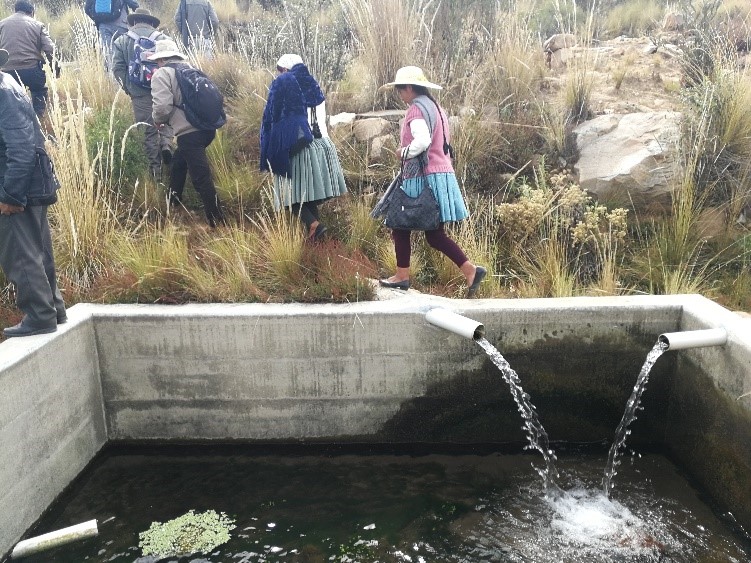
Summary
The Bioculture and Climate Change Project focuses on an approach for adaptation based on communities and their ancestral knowledge on climate, which goes beyond the traditional approach of ecosystem-based adaptation (EbA). It is developed in the upper valley of Cochabamba, Bolivia, for the protection of watersheds, through the co-creation and revaluation of ancestral knowledge.
Consistent with national mandates and policies, Bolivia seeks the valorisation and recovery of ancestral knowledge as a central component of CC adaptation actions. This solution focuses on an approach of adaptation based on communities and their ancestral knowledge on climate, which goes beyond the traditional approach of ecosystems-based adaptation (EbA).
In this sense, the Bioculture and Climate Change Project has been executed by the Plurinational Authority of Mother Earth (APMT) with funding from the Swiss Development Cooperation (SDC). The articulating axis of the program is water, fundamental in the central Andes, as well as a component of food sovereignty and agrobiodiversity. It is developed in the upper valley of Cochabamba for the protection of watersheds, through the co-creation and revaluation of ancestral knowledge. The project benefits indigenous and peasant families from 300 communities in 27 municipalities in the Andean and sub-Andean areas of the country and proposes a fusion between the sustainable management of biodiversity and the revaluation of ancestral knowledge in order to develop endogenous biocultural models.
One of the implementation areas of the project is the municipality of Totora, department of Cochabamba. In the last decade, there has been significant losses in agricultural production due to climate change effects and the absence or poor application of productive policies in favor of the food security of families and communities. The Municipality of Totora is home to 3 basins – Totora River, Ivirizu River and Mizque River – which in turn make up 13 sub-basins. One of the major problems facing the area is the limited availability of water, problems of property rights delimitation, and the lack of watersheds protection.
https://prorural.org.bo/index.php/proyectos/template/pages
https://www.agrecolandes.org/biocultura/
Overview
- Location:
- Implementation sites:
- Single country
- Multiple locations
- Mountain region:
- Andes
- Province:
- Province of Cochabamba
- Site locations:
Municipality of Totora
- Solution scale:
- Ecosystem type(s):
- Solution type(s):
- Sector(s):
- Climate impact(s) addressed:
- Impact time-scales:
- Co-benefits:
- Implementation timeline:
- 2015 - 2019
Solution details
Main beneficiaries & outcomes
For more than three years, around 600 families, from the valley and headwaters of the Totora Life System, have worked within the framework of the project to strengthen their response capacities to the adverse phenomena of climate change, by implementing ecological, sociocultural, economic and political-institutional buffering actions.
The project’s main benefits and beneficiaries were:
- 150 ha of agroforestry systems implemented with 332 families.
- 50 ha of protected watersheds area.
- 5 circular reservoirs built, which increased the irrigation area to 5 ha, benefiting 21 families.
- 60 women (Central Campesina de Mujeres Bartolina Sisa) strengthened in their capacities for organizational management, economic rights, food and leadership.
- 18 local leaders (14 men, 4 women) trained and strengthened in Territorial Development Management.
- 5 leaders trained as local climate observers from PACHAGRAMA 2018-2019.
- 6 products of the productive diversity, prepared and delivered in the complementary school feeding, in the municipality of Totora
Planning and implementation
The Bioculture and Climate Change Project is a joint effort of the Government of Bolivia and the Swiss Cooperation in Bolivia, involving the Plurinational Authority of Mother Earth (APMT) and the Ministry of Development Planning (MPD).
The commitment and joint work of the producer families with their agrarian unions and economic entrepreneurship, and with the Autonomous Municipal Government of Totora, has been achieved to promote the sustainable management of water, soil, forest and animals, as an example of comprehensive territorial management.
The Territorial Plan for Comprehensive Development (PTDI) 2016-2020 of Totora, considered one of the country’s pioneers, has been drawn up, approved and implemented. This allowed incorporating proposals that respond to the needs of the population in aspects of water management and food security.
Finance
Swiss Agency for Development and Cooperation (SDC).
Total cost (USD) of the solution implemented in Totora: 246,177 USD
More information can be found at https://www.agrecolandes.org/biocultura/
Innovation
The proposed Municipal Law on the protection of watershed areas in Totora aims to carry out an advocacy exercise towards departmental and national policy, to consolidate the regulatory framework regarding adaptation to climate change and conservation of watersheds in community areas. In addition, Bolivia has consolidated a national regulatory system with innovative instruments in planning, development and adaptation to climate change (Territorial Plans for Integral Development, Life Systems).
Performance evaluation
Impact evaluation and monitoring has been conducted by AGRECOL’Andes, with the following main results:
- The Territorial Plan for Integral Development (PTDI) of Totora, considered one of the country’s pioneers, has been drawn up, approved and implemented, within the framework of national regulations. This allowed incorporating proposals that respond to the needs of the population in aspects of water management, food security, etc.
- The economic counterpart of the Municipal Autonomous Government of Totora has been counted on in the execution of the project to strengthen the Risk Management Unit (newly created item). On the other hand, the financing of the following initiatives was achieved: (i) Project for the production of small animals with an amount of 100,000 Bs, and the organizational strengthening of the Bartolina Sisa Women’s Central; (ii) Project for the construction and equipment of the plant for the transformation of tubers and grains with an amount of 400,000.00 Bs.
Long term project sustainability and maintenance
It has been difficult to keep track of the project after its closure. The idea was to link the project with the Ministry of Development Planning (MPD), but it was difficult in the political context of the changing authorities that occurred in 2020. A three-year follow-up of observation of the practices was carried out while being in the field continuously. However, with the change of government, institutional continuity is lacking and the establishment of collaboration at the municipal level is complicated. The priority is to work on mechanisms to collect information and invest in monitoring systems for research projects at the municipal level.
Capacities for design and implementation
Knowledge
In the continuity of the Bioculture and Climate Change program, an initiative in the area is the Applied Research Program for Adaptation to Climate Change and the Andean Climate Project (PIA.ACC-UMSS.49) of the Universidad Mayor de San Simón in Cochabamba. Through the program, an analysis of local knowledge and narratives on climate risks was carried out, involving young people from the Tiraque municipality, in the province of Cochabamba. The theoretical proposal to achieve these objectives is based on studies about CC and the adaptation strategies of the Andean communities that have made various contributions that focus mainly on the collection and analysis of climate indicators.
Technology
A training process was carried out for young people to transmit knowledge to the elderly. The objective was to collect ritual practices throughout the agricultural cycle with an anthropological approach, and to monitor climate cycles in the community. A group of climate observers with specific training was created. The monitoring of climate cycles through trained people, and not through technological instruments, makes it possible to record other data related to local knowledge.
Political / Legal
Law No. 071 on the Rights of Mother Earth and Law No. 300 Framework of Mother Earth and Integral Development for Living Well constitute a consolidated legal framework with a complex planning system. This legal framework supports the development of projects like Bioculture and Climate Change. Law No. 777 on the Integral State Planification.
Institutional
In the second phase of the project (2015-2019), Biocultura has supported the MPD in the design of the National Plan for Economic and Social Development, with regard to the CC approach and, specifically, in the application of the notion of Life Systems that is at the centre of the Territorial Plans of Integral Development (PTDI). The objective is for the 27 Municipalities where Biocultura works to become 27 laboratories of improved methodologies, procedures and training of public authorities and community leaders for the implementation of the integral way of managing the territory from the CC perspective.
Socio-cultural
The AGRECOL Andes Foundation supports the draft municipal law for the protection of watersheds areas in the municipality of Totora. To prepare the process of promulgation of the municipal law, the First Water Summit was held in the municipality of Totora, on April 25, 2018, gathering the Municipal Government, representatives of peasant and neighbourhood organizations, the Local Council for Agricultural Productive Development (CLODEPA), technical, legislative and executive staff of the municipal government, the Agroecology University Centre (AGRUCO) of the Universidad Mayor de San Simón, the parish of Totora and development institutions that work in the municipality. The objective was to reflect on the need to carry out strategic and comprehensive actions to improve the supply of water for irrigation and human consumption. The summit allowed to initiate a dialogue between the communities and their authorities and to build evidence between science and politics.
Outlook & Scalability
Barriers and adverse effects
There are tensions between the different types of knowledge on CC at the territorial level, leading to a process of devaluation of local knowledge by municipalities and a barrier to up-scale traditional knowledge on climate towards national public policies. On the other hand, tensions may arise due to the lack of training for local actors in the use and exploitation of techno-scientific tools for climate information and governance.
In addition, there are limitations in the decentralization process and a lack of training for municipal technicians so that they can concretely implement national development planning instruments, and that they can, for example, formulate their own municipal laws. Another limit is the political instability caused by changes in governments, which negatively impacts the continuity of CC adaptation projects in the territories
Transformation and future outlook
The solution supports fundamental change in CCA in the area by involving and considering local communities’ needs, ancestral practices and knowledge in relation to water, climate perceptions and agrobiodiversity, as a public policy opportunity and long-term transformation in the face of climate change impacts and variability.
Potential for upscaling and replication
The proposed Municipal Law on the protection of watershed areas in Totora has the potential to be replicated in other provinces of Bolivia or other countries of the Andean region that face similar problems (e.g. Ecuador, Peru, Venezuela). This could be done through political advocacy actions towards the national government, especially the Ministry of Planning and Development, and regional cooperation programs in the Andes.
Finally
Acknowledgments
We thank the Andean Forests Program and Adaptation at Altitude Programmes financed by the Swiss Agency for Development and Cooperation (SDC), for their financial support. We also thank the teams at CONDESAN for their support, as well as the contributions from many experts and institutions working in AGRECOL’Andes and the University of San Simon of Cochabamba, Bolivia, for their inputs to the solution.
Contacts of key institutional partners involved with the solution planning and implementation
Bustamante Rocio: Bolivia Centro Agua Cochabamba ([email protected])
Villarroel Tito: Bolivia Agrecolandes Coordinador de programas ([email protected])
Ferreira Wanderley Julio: Bolivia Universidad Catolica de Cochabamba ([email protected])


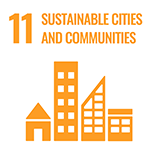
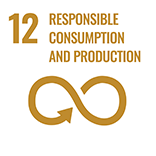
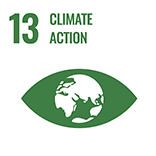
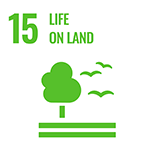
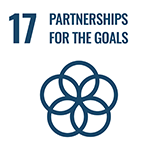
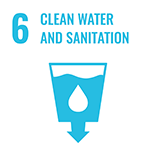
(0) Comments
There is no content